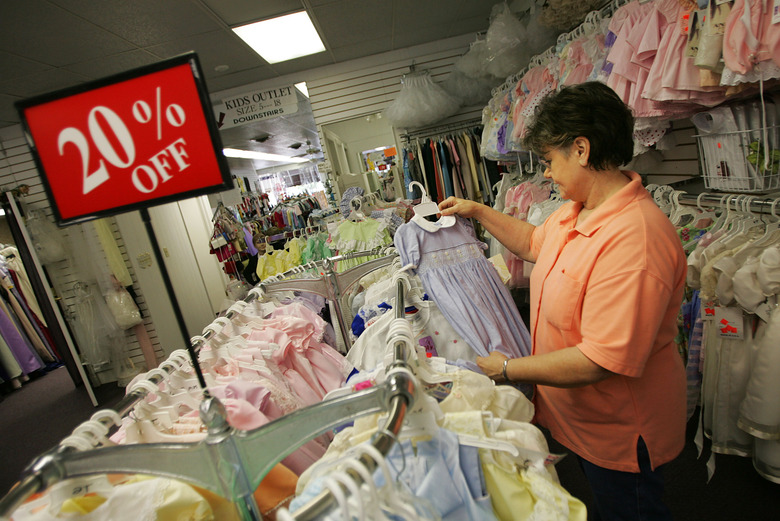The Importance Of Consignment Stores Recycling
Recycling isn't only for paper and plastics – consignment stores accept most items in your home and sell them back to the community. The U.S. Environmental Protection Agency recommends recycling your old clothes by working with resale shops since they offer you a way to make extra money, recycle unwanted goods and help the environment at the same time.
Textile Waste
Textile Waste
Consignment stores often deal in textiles, ranging from clothes to bedding to curtains. According to the EPA, 5.9 million kilograms (13.1 million pounds) of textile waste was generated in 2010. Consignment stores helped to recycle 14 percent of clothes and 17 percent of bedding in the same year — yet more than 80 percent is still ending up in the landfill. Without consignment stores, the 1.8 million metric tons (2 million tons) of recycled textiles per year might be reduced to nothing.
Recycling Benefits
Recycling Benefits
Recycling items like clothes or bedding reduces the amount of pollution from agriculture and production. Growing crops, like cotton, wastes 60 percent of the water it uses and pollutes nearby waterways because of the runoff from pesticides. Once the raw items needed for textiles are grown, producing the fabric in a factory releases pollutants like carbon dioxide. Even clothing companies that claim to be environmentally friendly inadvertently pollute if they don't check the practices of their raw material suppliers or packagers. By recycling textile goods at consignment stores, you reduce the water pollution from crops as well as the emissions from factories.
Consignment Stores
Consignment Stores
Consignment stores allow you to make money by recycling. Most accept clothing and other apparel — some also may take household goods, hobby items and even furniture. There are two business models for consignment stores — advanced pay and pay-upon-purchase. The first option gives you money when you drop your items off, and the second won't pay you until your item sells. At some stores, you may not make any money if your items do not sell, but you will still reap the benefits from recycling. Some consignment stores may not take all items — drop off whatever they don't take at charitable organizations.
Community Benefits
Community Benefits
Recycling your used goods benefits your community as well as the environment. The transportation costs associated with retail goods are reduced or eliminated. Consignment stores sell recycled items at lower costs than other stores because they are used. This allows community members to buy things they might not be able to afford at retail value, such as sporting goods for their children. Consignment stores also employ people to sort items, manage displays and check-out customers — these employees are able to support their families because of recycled items.
Cite This Article
MLA
MacGregor, Kelly. "The Importance Of Consignment Stores Recycling" sciencing.com, https://www.sciencing.com/importance-consignment-stores-recycling-4055/. 24 April 2017.
APA
MacGregor, Kelly. (2017, April 24). The Importance Of Consignment Stores Recycling. sciencing.com. Retrieved from https://www.sciencing.com/importance-consignment-stores-recycling-4055/
Chicago
MacGregor, Kelly. The Importance Of Consignment Stores Recycling last modified August 30, 2022. https://www.sciencing.com/importance-consignment-stores-recycling-4055/
